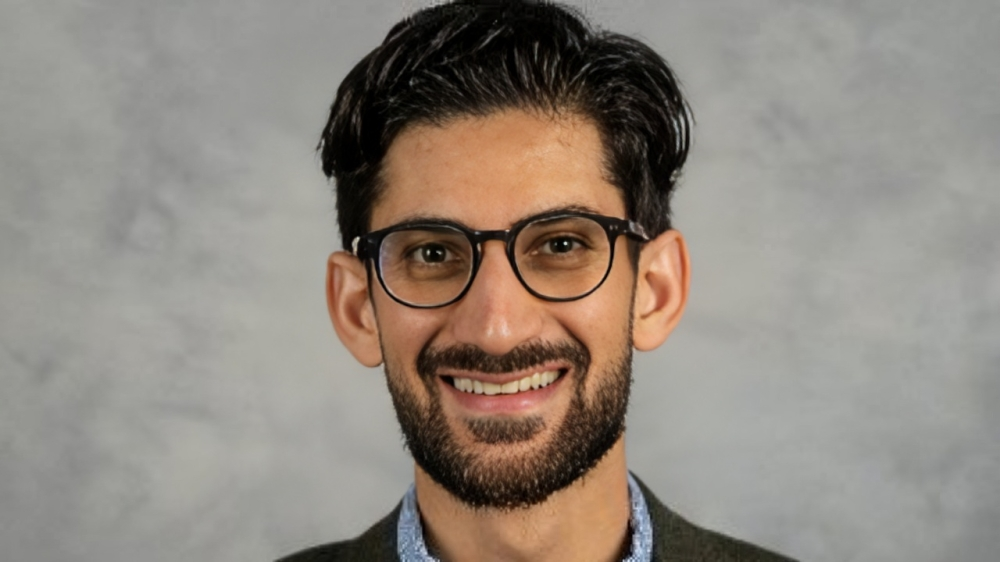
Nick Salgia: What Makes RCC Tumors Susceptible to Immunotherapy
Nick Salgia, MD-PhD student at the University at Buffalo & Roswell Park Comprehensive Cancer Center, shared a post on X about a recent article he and his colleagues co-authored published in Cancer Cell:
“Excited to share the bulk of my thesis work available online today.
We sought to dive into the tumor microenvironment of sarcomatoid renal cell carcinomas to better understand what makes RCC tumors susceptible to immunotherapy.
Sarcomatoid RCC is a rare kidney cancer that is hyper-aggressive yet preferentially responsive to checkpoint blockade. We performed scRNAseq, spectral flow cytometry, and spatial transcriptomics on human sRCCs and ccRCCs, with validation by RNAseq of >3,000 RCC tumors.
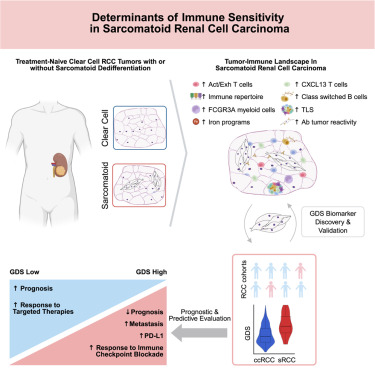
Key Findings: sRCC tumors are enriched for an immune axis comprising CXCL13-expressing T cells, tertiary lymphoid structures, antibody-producing B cells, and FCGR3A-expressing myeloid populations.
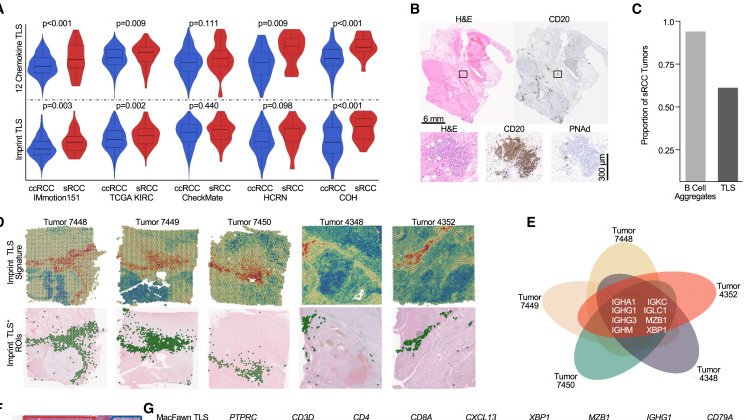
Ultimately, we show that there is increased antibody-tumor reactivity in sRCC compared to ccRCC, providing functional evidence for the importance of humoral immunity in anti-tumor immune surveillance in RCC.
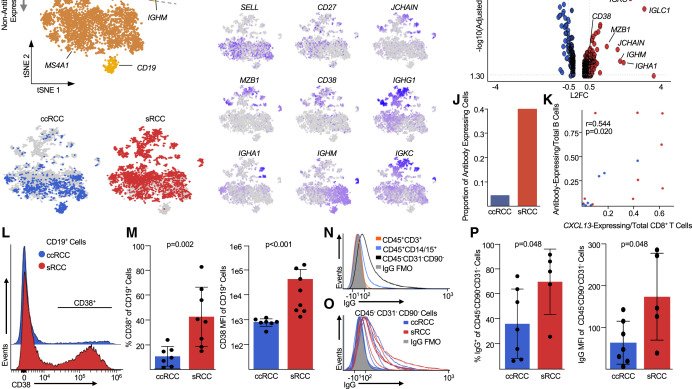
sRCCs exhibit dysregulated iron programs, including overexpression of iron transport genes, ferroptosis-associated programs, and the iron transporter CD44. This raises a hypothesis that iron dysregulation contributes to the preferential immune sensitivity of sRCCs.
A 10 gene signature derived from sRCC tumor cells, coined the Genomic Dedifferentiation Signature, captures the paradoxical clinical behavior of sRCC irrespective of sarcomatoid feature presence.
GDS-high patients have worse survival outcomes compared to GDS-low yet achieve improved responses to immunotherapy. GDS-low patients conversely achieve improved responses to anti-angiogenic therapy.
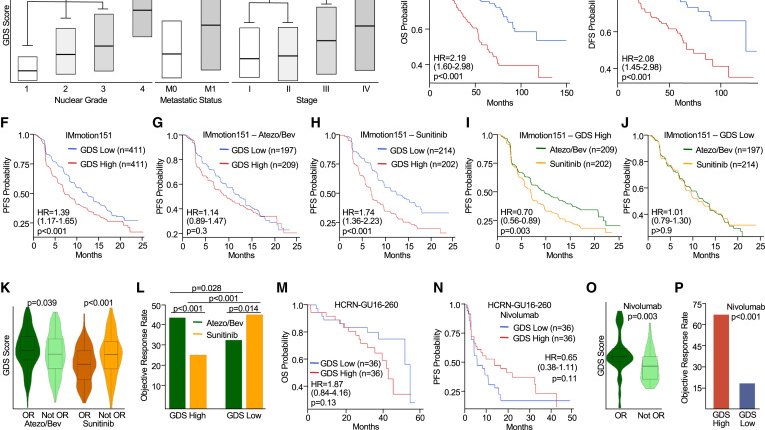
The GDS represents a new potential biomarker that is negatively prognostic, yet positively predictive in metastatic RCC. (Stay tuned for more on the GDS as a novel biomarker in RCC coming soon)!
This project was a huge effort spanning across disciplines. Thank you to those at Roswell Park especially PhD mentor, Jason Muhitch, and clinical mentor, Eric Kauffman. Many thanks to peers, colleagues, and administrators in University at Buffalo.
As always, deeply thankful for continued Best Mentor Ever Sumanta K. Pal and many other thought leaders who provided support and feedback throughout the evolution of this work.
Thanks to the amazing editorial team Cancer Cell and most importantly, thank you to the patients and their families who donated samples and time with the shared intent of improving the lives of those diagnosed with kidney cancer worldwide.”
Title: Comprehensive tumor-immune profiling reveals mediators of paradoxical immune sensitivity in sarcomatoid renal cell carcinoma
Authors: Nicholas J. Salgia, Adil Khan,Wilhelm M. Aubrecht, Gavin C. Twoey, Jacky Chow, Kristopher Attwood, Han Yu, Jessie L. Chiello, Nathaniel Hansen, Brianna J. Wasik, Benjamin D. Mercier, Hedyeh Ebrahimi, Luis Meza, Orla Maguire, Michalis Mastri, Cassandra Whalen, Hans Minderman, Patrick Pirrotte, Sara Byron, Elizabeth A. Repasky, Jason B. Muhitch
Read the Full Article on Cancer Cell
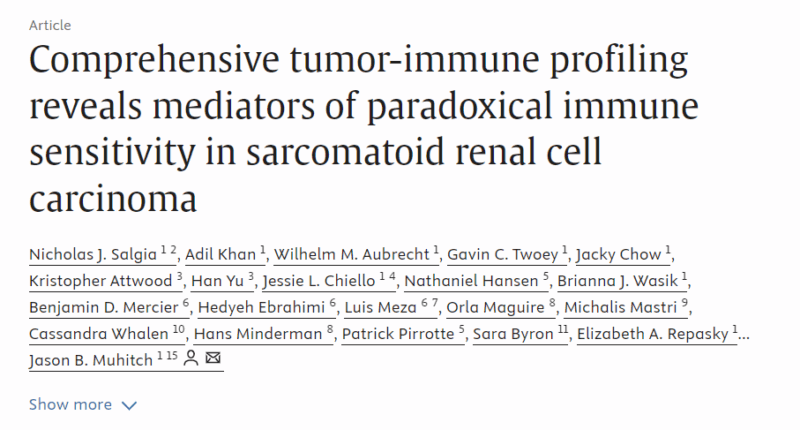
More posts featuring Renal Cell Carcinoma.
-
Challenging the Status Quo in Colorectal Cancer 2024
December 6-8, 2024
-
ESMO 2024 Congress
September 13-17, 2024
-
ASCO Annual Meeting
May 30 - June 4, 2024
-
Yvonne Award 2024
May 31, 2024
-
OncoThon 2024, Online
Feb. 15, 2024
-
Global Summit on War & Cancer 2023, Online
Dec. 14-16, 2023
